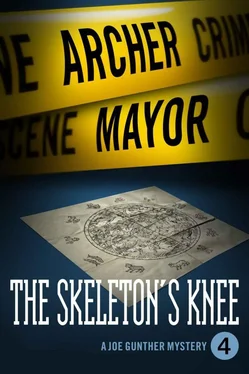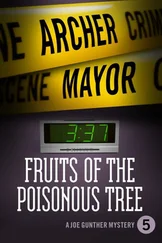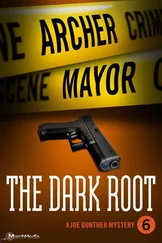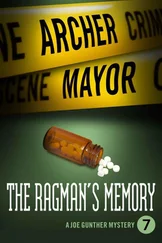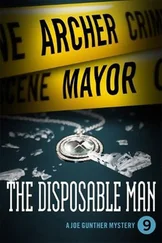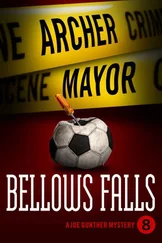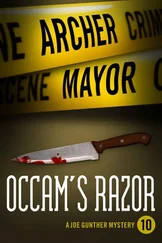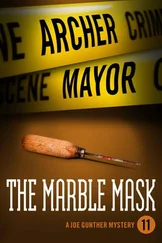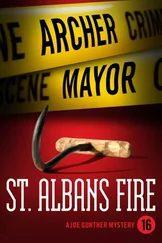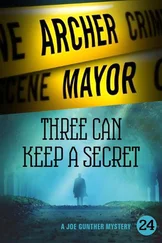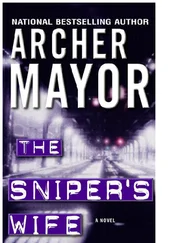Archer Mayor - The Skeleton's knee
Здесь есть возможность читать онлайн «Archer Mayor - The Skeleton's knee» весь текст электронной книги совершенно бесплатно (целиком полную версию без сокращений). В некоторых случаях можно слушать аудио, скачать через торрент в формате fb2 и присутствует краткое содержание. Год выпуска: 1993, ISBN: 1993, Издательство: MarchMedia, Жанр: Полицейский детектив, на английском языке. Описание произведения, (предисловие) а так же отзывы посетителей доступны на портале библиотеки ЛибКат.
- Название:The Skeleton's knee
- Автор:
- Издательство:MarchMedia
- Жанр:
- Год:1993
- ISBN:9781939767042
- Рейтинг книги:3 / 5. Голосов: 1
-
Избранное:Добавить в избранное
- Отзывы:
-
Ваша оценка:
- 60
- 1
- 2
- 3
- 4
- 5
The Skeleton's knee: краткое содержание, описание и аннотация
Предлагаем к чтению аннотацию, описание, краткое содержание или предисловие (зависит от того, что написал сам автор книги «The Skeleton's knee»). Если вы не нашли необходимую информацию о книге — напишите в комментариях, мы постараемся отыскать её.
The Skeleton's knee — читать онлайн бесплатно полную книгу (весь текст) целиком
Ниже представлен текст книги, разбитый по страницам. Система сохранения места последней прочитанной страницы, позволяет с удобством читать онлайн бесплатно книгу «The Skeleton's knee», без необходимости каждый раз заново искать на чём Вы остановились. Поставьте закладку, и сможете в любой момент перейти на страницу, на которой закончили чтение.
Интервал:
Закладка:
Sunset Lake Road climbs to the body of water after which it’s named-a large, beautiful hilltop pond ringed by rustic cabins and dense woods, but the lake is actually in Marlboro township, which raised a concern in my mind that Coyner’s property might be just outside the Brattleboro town line, and therefore outside my jurisdiction.
Along its least civilized stretches, the road has blind corners, intermittent axle-killing ditches, and spots where a storm’s runoff reduces it to little more than a stream crossing. But, as I approached the Hescock Road turnoff, the reward proved worth the effort: a view of operatic scale, extending south-southeast into Massachusetts and seemingly forever beyond. Blue-gray hills, spiky with evergreens, mountain passes, and the occasional glimmering pond, all lay before me with the same hopelessly romantic artificiality of a mural-sized landscape painting.
I followed Hescock’s semicircle less than halfway around until I came to an overgrown driveway marked by a mailbox and the rutted ‘passage of years’ worth of four-wheel traffic. The driveway-more of a grass-tufted lane-meandered a few hundred yards through the woods to a clearing as spectacular as the one I’d just left, where I found a rambling two-hundred-year-old Greek Revival farmhouse, weatherbeaten and in need of paint, but as seemingly solid as the boulders poking through the lawn at its feet. By my calculations, I was still within township lines.
I killed the engine and swung out of the car, automatically slinging the department’s 35-mm camera over my shoulder, my eyes irresistibly drawn to the hundred-mile view at my feet. I noticed then that a few leaves had already begun to fall from some of the trees, in reaction to the cool mountain air. In the valleys, early September meant a slight chill at night. Up here, that chill stayed put until mid-afternoon.
“Who are you?”
I turned at the voice, at once challenging but unthreatening. A tall, stooped, white-haired man had rounded the corner of the house, wearing a red-and-black-checked wool overshirt and holding a rake in his hand.
“Joe Gunther. I’m from the Brattleboro Police Department.”
The white-haired man stopped about ten feet from me, his pale eyes still and watchful, glistening like polished stones in a narrow, much-seamed, expressionless face. “What do you want?” He quickly glanced at the camera.
“Are you Fred Coyner?”
“Maybe.”
I couldn’t suppress a smile. The answer was a parody of how “real” Vermonters speak. “I wanted to ask you about Abraham Fuller. I gather you called the ambulance several days ago that took him to the hospital?”
Coyner remained silent, seemingly uninterested in confirming the obvious.
“Did anyone give you an update on his condition?”
“Nope.”
“He died, Mr. Coyner. Of a very old bullet wound.”
There was a prolonged silence, offset only by distant birdcalls and the occasional rustle of a few crown-top leaves. Coyner’s expression, what there was of it, didn’t change, but after a pause, he shifted his gaze from me to the vague and distant horizon.
“Did you know he’d once suffered a gunshot wound?” I asked.
He still refused to answer. After several moments of contemplation, he finally muttered, “What do you want here?”
“I’d like to see where he lived, for starters.”
“Follow me.” He turned abruptly and began marching off at a surprisingly fast and steady pace, given his age. Having studied him up close, I guessed him to be somewhere in his seventies, lean, leathery, and hard, shaped by the weather and the personal isolation he wore like a mantle.
We walked for about fifteen minutes along a barely discernible path cut through the woods. I noticed to my surprise that running from tree to tree, fastened by bent-over nails or just looped over branches, was a heavy-gauge electrical wire.
“How long did you know Mr. Fuller?” I asked at one point, but the response was much as I’d expected: total silence. We trudged along quietly after that. I began to wonder if I would get any more from Coyner than I might from the surrounding trees.
We eventually came to a large opening in the woods, completely hemmed in by an impenetrable circle of trees and brush, as if a giant’s heel had crushed the woods flat in this one spot, leaving the rest of the forest untouched. At the edge of the clearing, across from where we entered, was a small dirt-colored dwelling, a story-and-a-half high, mostly made of logs, with a rusty metal roof, a rough lean-to on one side, and a sturdy homemade greenhouse on the other. A metal chimney poked out of the building’s center. It was no thing of beauty, but it looked trim and tight and well tended. It was a shelter rather than an architectural expression, and as such it displayed a certain comforting appeal, like the huts and cottages in an illustrated children’s book.
The storybook feeling was heightened by the landscaping before us, in front of the house. Every inch of open space from the front door to the very edge of the woods was under cultivation. Rows of vegetables, banks of berry bushes, arbors, trellises, stepped-up flower beds, and a sinuous, graceful latticework of pathways all combined to form an intricate, soothing display of virtually every form of plant life supportable in this area. The weather had begun to turn cold up here, the first hard frosts were just a few weeks away, and the summer’s colorful cloak had begun to fade and unravel. Nevertheless, it was easy to see that this insulated, private spot, jealously tended and walled off from the rest of the world, was a paradise for six months of the year.
“Was Fuller the one with the green thumb, or is all this yours?” I asked my taciturn guide, who had entered the clearing with barely a glance around.
“His.”
We marched in single file up to the door of the cabin, where Coyner stepped aside like the bellboy to some hotel room, his job done, eager to be gone. He nodded his head toward the building, lifted the latch to the door, and pushed it open a few inches. “There. All yours.”
I called after him as he retreated back down the narrow central path. “You going to be around for a couple of hours? I’d like to ask you a few questions later.”
He didn’t answer.
I pushed the door wide open and stood there for a few moments, adjusting to the darkness within, taking account of what I could see, smell, and sense. I then took the camera out of its case and checked its settings.
It is a given at the start of a homicide investigation that everything and everybody should be approached fresh and without prejudice, so that no telltale signal, no matter how subtle, can be eclipsed by the investigator’s preconceptions. It is a fact, however, that such perfect neutrality is impossible.
Except here.
In my subconscious, ever since I’d first heard of him, I’d been trying to nail Abraham Fuller down. Images had stirred of a rough, back-to-nature man, a product of the sixties, with a secret, violent past. Dr. Brook and the hospital comptroller had introduced the notion of a loony hermit. But now, standing on the threshold to his house, confronted by the pristine, picture-perfect world he’d made for himself, I no longer knew what to think.
The cabin reminded me of the period set pieces found in popular folk museums, where the chairs, tables, rugs, and wall hangings of a specific era are arranged to evoke days long past. The effect usually flops, of course. The human energy is always missing, leaving behind only silence and an overwhelming sense of sterility. In Fuller’s place, the theme was contemporary, middle-class, woodsy-rural-and just as hollow.
Something else was missing, too. In every home, no matter how compulsive the owner, there are at least a few signs of life ongoing-bills piled on desks, tables covered with unread magazines, sinks filled with dirty dishes.
Читать дальшеИнтервал:
Закладка:
Похожие книги на «The Skeleton's knee»
Представляем Вашему вниманию похожие книги на «The Skeleton's knee» списком для выбора. Мы отобрали схожую по названию и смыслу литературу в надежде предоставить читателям больше вариантов отыскать новые, интересные, ещё непрочитанные произведения.
Обсуждение, отзывы о книге «The Skeleton's knee» и просто собственные мнения читателей. Оставьте ваши комментарии, напишите, что Вы думаете о произведении, его смысле или главных героях. Укажите что конкретно понравилось, а что нет, и почему Вы так считаете.
